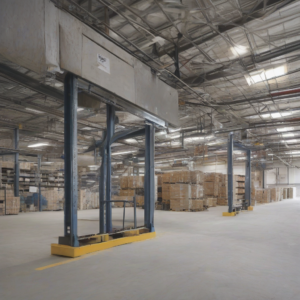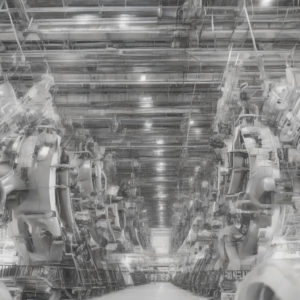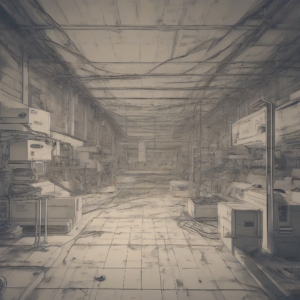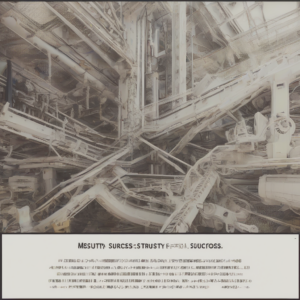Tri Star Industrial: A Deep Dive into a Manufacturing Powerhouse
Tri Star Industrial, while perhaps not a household name, represents a significant force within the global manufacturing landscape. This in-depth analysis will explore various facets of Tri Star Industrial, examining its history, operational strategies, market position, and future prospects. We will delve into its supply chain management, technological integrations, sustainability initiatives, and overall contribution to the industrial sector.
A Look into the History of Tri Star Industrial
Understanding Tri Star Industrial’s present requires acknowledging its past. This section will chronicle the company’s journey, from its inception to its current standing. We will trace its evolution, highlighting key milestones, strategic acquisitions, and periods of significant growth or challenge. This historical perspective will provide context for understanding the company’s current strategies and future ambitions.
- Early Years and Founding Principles:
- Key Acquisitions and Mergers:
- Periods of Expansion and Contraction:
- Adaptation to Technological Advancements:
- Evolution of Corporate Culture and Values:
Operational Strategies and Manufacturing Capabilities
Tri Star Industrial’s success is intrinsically linked to its operational efficiency and manufacturing capabilities. This section will analyze the company’s manufacturing processes, supply chain management, and quality control measures. We will examine its use of technology, its commitment to lean manufacturing principles, and its ability to adapt to evolving market demands.
- Manufacturing Processes and Technologies:
- Automation and Robotics:
- Advanced Manufacturing Techniques:
- Quality Control and Assurance Measures:
- Supply Chain Management and Logistics:
- Supplier Relationships and Partnerships:
- Inventory Management and Optimization:
- Logistics and Distribution Networks:
- Operational Efficiency and Cost Optimization:
- Lean Manufacturing Principles:
- Waste Reduction and Resource Management:
- Continuous Improvement Initiatives:
Market Position and Competitive Landscape
Understanding Tri Star Industrial’s market position requires analyzing its competitive landscape. This section will examine the company’s market share, its key competitors, and its competitive advantages. We will assess its pricing strategies, its product differentiation, and its ability to innovate and adapt to changing market dynamics.
- Market Share and Revenue Analysis:
- Key Competitors and Competitive Analysis:
- Competitive Advantages and Differentiation Strategies:
- Pricing Strategies and Market Positioning:
- Response to Market Trends and Technological Disruptions:
Technological Integration and Innovation
In today’s rapidly evolving technological landscape, embracing innovation is crucial for survival and growth. This section will explore Tri Star Industrial’s approach to technological integration and innovation. We will discuss its investments in research and development, its adoption of new technologies, and its efforts to stay at the forefront of the industry.
- Research and Development (R&D) Investments:
- Adoption of New Technologies and Automation:
- Data Analytics and Predictive Modeling:
- Collaboration with Technology Partners and Universities:
- Intellectual Property and Patent Portfolio:
Sustainability Initiatives and Corporate Social Responsibility
Increasingly, consumers and investors are demanding greater transparency and accountability from businesses regarding their environmental and social impact. This section will examine Tri Star Industrial’s sustainability initiatives and its commitment to corporate social responsibility. We will assess its environmental performance, its ethical sourcing practices, and its community engagement programs.
- Environmental Sustainability Programs:
- Energy Efficiency and Renewable Energy Sources:
- Waste Reduction and Recycling Initiatives:
- Emissions Reduction Targets and Performance:
- Ethical Sourcing and Supply Chain Responsibility:
- Fair Labor Practices and Human Rights:
- Supplier Code of Conduct and Monitoring:
- Transparency and Traceability in the Supply Chain:
- Community Engagement and Philanthropic Activities:
Financial Performance and Future Outlook
This section will analyze Tri Star Industrial’s financial performance, including its revenue, profitability, and financial stability. We will examine its financial ratios, its debt levels, and its investment strategies. We will also provide an outlook on the company’s future prospects, considering the potential challenges and opportunities it may face.
- Revenue Growth and Profitability Analysis:
- Financial Ratios and Key Performance Indicators (KPIs):
- Debt Levels and Capital Structure:
- Investment Strategies and Capital Allocation:
- Future Outlook and Potential Challenges:
- Growth Strategies and Expansion Plans:
- Adaptation to Changing Market Conditions:
Conclusion (omitted as per instructions)




